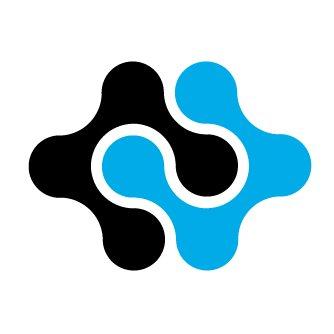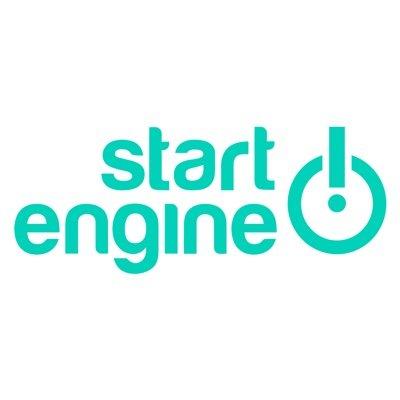Comparisons
Class
- Collectibles
- Residential Real Estate
- Commercial Real Estate
- Business
- Venture Capital
- Private Market
- Agricultural Real Estate
Type
- Art
- Wine
- Rental Property
- Operational Entity
- Startups
- Private Credit
- Portfolio of Assets
- Trading Cards
- Land
Form
Country
Invest
- $15,000
- $2,500
- $1,000
- $5
- $25,000
- $500
- $100
- $35,000
- $50
- $56,000
- $5,000
- $10
- $10,000
- $250
- $20
- $3,515
- $3,000
- $2
Investor
Liquidity
Risk
Volatility
Insurance
Regulation
Return
Timeframe
Management
Moneyflow
Fee
Tax
Comparisons
Class
- Collectibles
- Residential Real Estate
- Commercial Real Estate
- Business
- Venture Capital
- Private Market
- Agricultural Real Estate
Type
- Art
- Wine
- Rental Property
- Operational Entity
- Startups
- Private Credit
- Portfolio of Assets
- Trading Cards
- Land
Form
Country
Invest
- $15,000
- $2,500
- $1,000
- $5
- $25,000
- $500
- $100
- $35,000
- $50
- $56,000
- $5,000
- $10
- $10,000
- $250
- $20
- $3,515
- $3,000
- $2
Investor
Liquidity
Risk
Volatility
Insurance
Regulation
Return
Timeframe
Management
Moneyflow
Fee
Tax
Investments
€50
The minimum investment on Timeless is €50 per share.
High Risk
4/5
Investing on Timeless involves risks such as market volatility, liquidity constraints, regulatory changes, and asset-specific issues like authenticity. Additionally, platform-related risks such as data security and operational stability could affect investments. These factors highlight the importance of thorough risk assessment and consideration of personal risk tolerance before investing in collectibles through Timeless.
While traditional collectible investments are illiquid, Timeless offers a level of liquidity by enabling trading among investors during the average holding period of 2 to 8 years. However, liquidity is influenced by demand within the platform and the collective decision to sell the asset.
High Return
40 %
Timeless cannot guarantee returns as the collectibles market is unpredictable. However, historical data shows an average annual return of 40% on their platform, with returns ranging from 9.1% to 93.1% per year. Investors should note that past performance is not indicative of future results.
Long-term Investment
2-8 years
The typical investment time horizon on Timeless ranges from 2 to 8 years, varying by asset class. During this period, investors can trade shares for liquidity before a collective decision is made to sell the asset, subject to majority approval.
Who can invest
European Union
To invest with Timeless, individuals must be at least 18 years old, possess a valid ID card or passport, have a SEPA bank account, and not be taxable outside the EU. Additionally, they must have a permanent residence. Importantly, US citizens and US taxpayers are excluded from using Timeless's services due to SEC restrictions and the implications of the FACTA, which targets tax evasion by US citizens abroad.
Receive new reviews from Fintorial
Investments
$10,000
The minimum investment amounts on the OurCrowd platform are as follows: $10,000 for individual company investments, $5,000 per company with a $25,000 balance transfer for a Portfolio Select Account, and $50,000 for investing in OurCrowd funds.
High Risk
4/5
Investing via OurCrowd carries risks, including the potential loss of capital, market fluctuations, and limited liquidity. Early-stage companies may not succeed, leading to a total or partial loss.
Investments on the OurCrowd platform are generally illiquid, as they involve early-stage, privately-held companies. Liquidity events, such as a sale or IPO, may take several years, and there is no guarantee or secondary market for trading these investments. Investors should be prepared for long-term commitments without immediate liquidity options.
Returns on investments in OurCrowd's early-stage companies and venture funds are highly variable and unpredictable. While there is potential for high returns, given the speculative nature of startup investing, there's also a significant risk of loss.
Long-term Investment
5+ years
Investments through OurCrowd typically require a long-term commitment, often spanning several years to over a decade, due to the nature of startup and venture fund investing.
Who can invest
International
OurCrowd investments are open to accredited investors as per local regulations, which vary by country. However, residents of Cuba, Iran, Lebanon, North Korea, Syria, and the Crimea Region of Ukraine are excluded from investing through the platform.
Investments
$2
The minimum investment on Alt begins at $2.
High Risk
4/5
Investing in trading cards on Alt involves market risk, liquidity risk, uncertainties in authentication and grading, regulatory changes, operational risks including cybersecurity threats, and risks related to the physical storage and insurance of assets.
Alt enhances the liquidity of trading cards through the Alt Exchange and Alt Liquid Auctions, enabling quick and efficient buying and selling of authenticated, graded cards stored in the Alt Vault. Bi-weekly auctions provide regular opportunities for transactions, while Alt Lending allows users to access cash without selling their assets.
Returns on trading card investments via Alt are influenced by the rarity, condition, and market demand for specific cards, making them highly variable. While some cards may see substantial appreciation, others might not perform as well, reflecting the speculative nature of alternative investments. Investors should adopt a long-term view and be prepared for fluctuations, as significant returns are possible but not guaranteed.
Long-term Investment
5+ years
The investment time horizon for trading cards on Alt is typically long-term.
Who can invest
International
To invest on Alt, individuals must be at least 18 years old, provide a current address, a Social Security number for U.S. residents, and a valid government-issued photo ID for both U.S. and international users. Alt is inclusive of international investors, accepting payments from 76 additional countries.
Investments
$50
The minimum investment on Republic starts at $50, varying by deal.
High Risk
4/5
Investing on Republic involves significant risks such as the potential total loss of investment, illiquidity, long-term commitment without guaranteed returns, risk of dilution, limited information on investments, and possible impacts from regulatory changes.
Investments on Republic are generally illiquid, meaning it may be difficult to sell or convert them into cash quickly.
Returns on Republic depend on the success of invested projects, companies, or funds, with potential payouts varying by investment terms.
Long-term Investment
3-10 years
Investments on Republic typically have a long-term horizon, often requiring several years to over a decade before potential returns are realized.
Who can invest
International
Anyone 18 or older can invest on Republic, with specific eligibility and investment limits varying by campaign. International investors can participate in many offerings, subject to local laws and specific campaign terms.
Receive new reviews from Fintorial
Invest in startups in exchange for equity or debt
Investments
$250
The minimum investment on StartEngine typically starts from $250, with the average being around $500.
High Risk
4/5
Investing on StartEngine carries risks including market volatility, liquidity challenges, regulatory changes, the high likelihood of company failure, dilution of shares, limited company information, and the absence of guaranteed returns.
Liquidity on StartEngine Secondary varies due to its nature as a peer-to-peer trading platform with specific eligibility criteria and trading hours. Initially limited to companies that have raised on StartEngine, the platform's liquidity is influenced by the availability of securities and the matching of buy and sell orders within designated market hours.
Potential returns on investments are uncertain and vary. StartEngine's role ends after a company's capital raising concludes, leaving it without control or insight into post-offering investment activities.
Long-term Investment
5+ years
Investments through StartEngine typically have a long-term horizon, often requiring several years to potentially yield returns due to the early-stage nature of the companies.
Who can invest
International
StartEngine allows anyone over 18 to invest. However, due to regulatory concerns, StartEngine does not currently accept investments from residents of the UK or Canada.
Investments
$100
The standard minimum investment on Wefunder for most Community Rounds is $100. However, the exact minimum can vary based on the specific offering and the investor's status as an accredited investor.
High Risk
4/5
Investing in startups on Wefunder is highly risky, and there's a real possibility of losing your entire investment.
Wefunder's investments are not highly liquid, as there is no public market for selling your stake. After one year, you can sell to any interested buyer.
On Wefunder, investors can earn returns through different investment mechanisms: Debt, Convertibles Stock (No Dividends), Stock, Dividends. Investment returns on Wefunder vary by investment type, with dividends more typical in later-stage, non-tech businesses.
Long-term Investment
7 years
Investments on Wefunder are long-term, with an average return period of around seven years, particularly for convertible notes or SAFEs.
Who can invest
International
Individuals 18 and older can invest on Wefunder, regardless of whether they are accredited or non-accredited investors. Additionally, Wefunder allows investments through entities.
Investments
$10,000
The minimum investment on EquityZen is $10,000, though this may vary by offering.
High Risk
4/5
Investing in private companies via EquityZen involves risks such as limited liquidity, market volatility, company performance uncertainties, regulatory changes, less available information, and potential lack of diversification, which could impact investment returns.
EquityZen offers liquidity for vested shares only. It does not provide liquidity for unvested shares, unvested RSUs, or options directly.
Unlike public market investments, private investments carry higher risks and unpredictability. Consequently, it's challenging to define a standard return rate for EquityZen investments.
Long-term Investment
2-5 years
Typically, companies on EquityZen have received late-stage funding, suggesting an expected investment horizon of 2-5 years, but outcomes can vary widely.
Who can invest
United States
Only accredited investors can invest in EquityZen's offerings.
Investments
$5,000
The minimum investment for Sweater's Cashmere Fund is $500.
High Risk
4/5
Investing in Sweater's Cashmere Fund, like any venture capital investment, carries inherent risks. These risks include market volatility, economic conditions, and challenges specific to the companies in which the fund invests.
Sweater provides biannual redemption windows for investors to access their investment before the end of the investment term. However, there may be restrictions and limitations on the redemption process.
Low Return
4.08 %
The fund has achieved an annualized return of 4.08% since its inception.
Long-term Investment
1-5 years
Sweater's Cashmere Fund is designed for long-term investments, but they provide biannual redemption windows for investors to redeem a portion or all of their investment.
Who can invest
United States
Any U.S. resident over the age of 18 with a Social Security Number (SSN) is eligible to invest in Sweater's Cashmere Fund.
Investments
$500
The minimum investment in FranShares is $500, funded through ACH or wire transfer.
High Risk
4/5
Investing in FranShares involves risks such as market volatility, economic changes, and franchise-specific challenges. Despite efforts to mitigate risks, there's no guarantee of returns, and FranShares' financial health could impact investments.
While liquidity isn't guaranteed, the platform is developing a secondary market for potential future liquidity opportunities.
Moderate Return
20 %
FranShares' TNT Franchise Fund Inc., with 55 locations across major U.S. metros, historically generates returns of 20 to 28% EBITDA per location after 16-18 months.
Long-term Investment
5-15 years
Income portfolios target a 10-15 year hold; growth funds aim for a 5-7 year period before selling.
Who can invest
International
FranShares welcomes both accredited and non-accredited investors, focusing mainly on opportunities for non-accredited individuals. The platform also accepts international investors from many countries, depending on the specifics of each offering.








